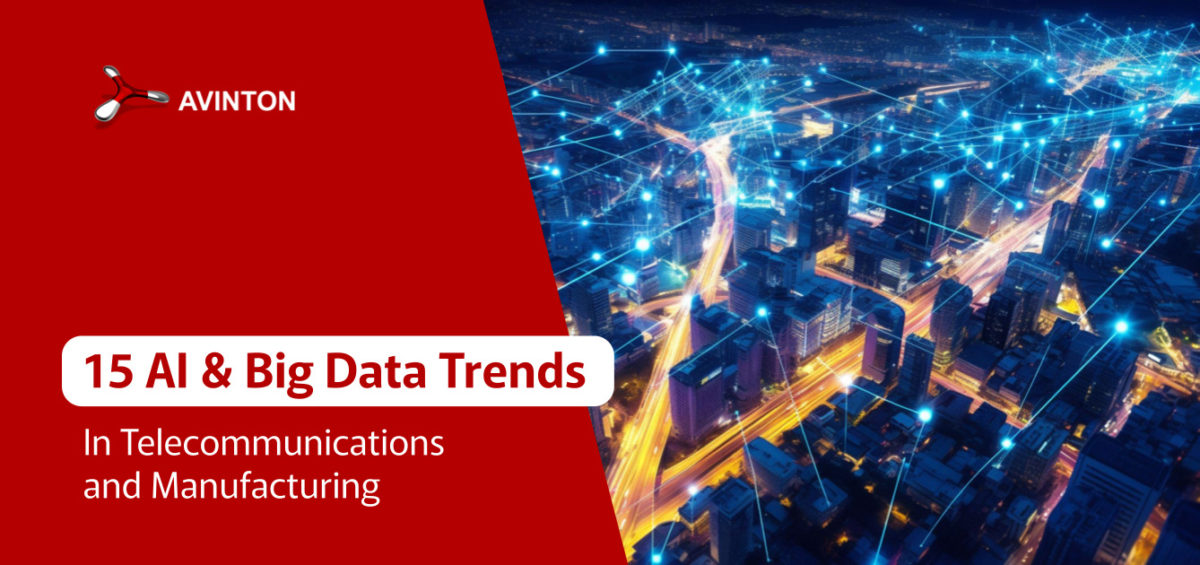Table of Contents
Society 5.0 is a new societal concept that has emerged from Japan, envisioning the integration of digital technologies with traditional industries to enhance the quality of life and promote sustainable economic development. The concept’s vision is to optimize all aspects of society by the integration of technology in areas like healthcare, transportation, education, and energy. The fifth evolution of human society is characterized by its potential to improve productivity, efficiency, and quality of life, making it an exciting area to explore.
In this article, we want to focus specifically on the role of the telecommunications and manufacturing industries within Society 5.0.
Challenges and Opportunities in the Telecommunications Industry
The telecommunications industry plays a vital role in the realization of Society 5.0. Its critical challenge is to provide infrastructure and communication services that meet the demands of a highly connected society. This involves significant investment in research and development to create new and innovative solutions. Additionally, the industry must address the issue of cybersecurity to ensure secure and reliable communication services.
Opportunities for the telecommunications industry in Society 5.0 are vast. The increased adoption of 5G networks will allow for the development of new and innovative applications such as autonomous vehicles, remote surgery, and augmented reality. The use of 5G networks will also enable the development of new IoT applications, allowing for the optimization of various industries such as agriculture, transportation, and logistics.
What are the potential use cases of 5G networks within Society 5.0?
- Smart Cities: 5G networks can enable the development of smart cities, where intelligent systems and sensors communicate and interact with each other. The use of AI and edge computing can help to analyze the data generated by these systems, providing insights into traffic patterns, energy usage, and other aspects of urban life.
- Augmented and Virtual Reality (AR/VR): 5G networks can provide low-latency, high-bandwidth connections that are necessary for AR/VR applications. The use of AI and edge computing can enhance these applications, providing more immersive and interactive experiences.
- Autonomous Vehicles: 5G networks can enable the communication and coordination required for the operation of autonomous vehicles. The use of AI and edge computing can enhance the safety and efficiency of these vehicles, providing real-time analysis and decision-making capabilities.
- Remote Surgery: 5G networks can provide the low-latency, high-bandwidth connections required for remote surgery. The use of AI and edge computing can enhance the precision and safety of these procedures, providing real-time analysis and decision-making capabilities.
- Network Optimization: 5G networks can provide high-bandwidth, low-latency connections that are necessary for the delivery of high-quality services. The use of AI and edge computing can optimize network performance, reducing latency and improving overall efficiency.
- Fraud Detection: 5G networks can enable the collection of vast amounts of data, providing insights into customer behavior and network usage. The use of AI and edge computing can analyze this data in real-time, providing fraud detection capabilities and reducing losses.
- Personalized Services: 5G networks can enable the delivery of highly personalized services, tailored to individual customer needs and preferences. The use of AI and edge computing can provide real-time analysis of customer data, enabling the development of customized services and products.
Challenges and Opportunities in the Manufacturing Industry
The manufacturing industry (and the so-called Smart Factory) is another key player in the realization of Society 5.0. The industry’s critical challenge is to develop and implement new and innovative technologies that will enable highly efficient and flexible manufacturing processes. The integration of AI, IoT, and edge computing is essential for the development of such processes, making them highly customized and personalized.
There are various opportunities for the manufacturing industry in Society 5.0. The integration of digital technologies with traditional industries will result in the development of new and innovative manufacturing processes. The creation of highly efficient and flexible manufacturing processes will result in highly customized and personalized products, giving the industry a competitive advantage.
What are the technical trends in the manufacturing industry?
- Predictive Maintenance: collecting data from sensors and other devices to provide insights into the health and performance of manufacturing equipment. The use of AI and edge computing can analyze this data in real-time, providing predictive maintenance capabilities and reducing downtime. An example is the so-called “Ambient Sound Recognition” which applies AI to factory machine sounds in order to detect abnormalities even long before a machine breakdown.
- Quality Control: collecting data from sensors and other devices to enable insights into the quality of products during the manufacturing process. As a result, defects can be identified in real-time, and waste can be reduced.
- Autonomous Robots: enabling the operation of autonomous robots on the factory floor. The use of AI and edge computing can enhance the safety and efficiency of these robots, providing real-time analysis and decision-making capabilities.
- Supply Chain Optimization: 5G networks can provide high-bandwidth, low-latency connections that are necessary for the delivery of real-time data from sensors and other devices along the supply chain. As a result, the supply chain performance can be optimized, reducing delays and improving overall efficiency.
- Worker Safety: sensors and other devices can provide insights into the safety of workers on the factory floor. The goal is to identify potential hazards and improve worker safety.
- Asset Tracking: tracking of assets and materials throughout the manufacturing process, improving inventory management and reducing waste.
- Remote Assistance: 5G networks can enable the delivery of remote assistance to workers on the factory floor. AI and edge computing technologies can provide decision-making capabilities to remote experts.
- Personalized Manufacturing: delivery of highly personalized products, tailored to individual customer needs and preferences. The use of AI and edge computing can enable the development of customized products.
Conclusion
The future trends in Society 5.0 will likely focus on the integration of various technologies, including AI, IoT, edge computing, and blockchain. The integration of these technologies will result in the development of highly efficient and optimized systems that will enable the creation of a highly connected and sustainable society.
The focus on sustainability will increase, with the development of sustainable technologies, including renewable energy and sustainable manufacturing processes. This will involve significant investment in research and development to create new and innovative solutions that meet the demands of a sustainable society.
Society 5.0 is an exciting area to explore, with vast potential to enhance the quality of life and promote sustainable economic development. The telecommunications and manufacturing industries are key players in the realization of Society 5.0, with significant challenges and opportunities. The integration of AI and edge computing is essential for the development of Society 5.0, enabling the optimization of various industries and the creation of highly efficient and flexible systems. Future trends in the field will likely focus on the integration of various technologies, with an increased focus on sustainability. It is an exciting time for the development of Society 5.0, and the potential for innovation and growth is vast. By addressing the challenges and embracing the opportunities, we can create a highly connected and sustainable society that benefits us all.
About Avinton Japan
Avinton Japan is an IT engineering company based in Yokohama, Japan. The company was founded in 2013 and focuses on developing customized solutions for businesses in various industries, including telecommunications and manufacturing.
Avinton Japan offers a wide range of services, including software development, system integration, and IT consulting. We specialize in technologies such as AI and machine learning in order to build innovative solutions for our clients.
We will be happy to provide you with more information.




